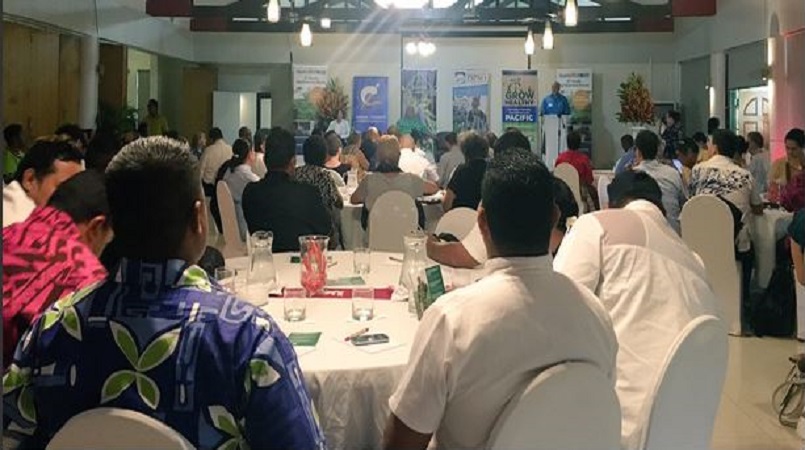
A former academic and tourism expert is trying boost connections between the agriculture and tourism sectors in the Pacific.
Greg Cornwall works for Pacific Islands Resort Consultants Ltd based in Nadi Fiji and he is in Samoa for the second Pacific Agribusiness Forum where discussions have focused on making tourism in Samoa a sustainable method of development by encouraging a link between the two sectors.
Cornwall says one of the ways of increasing the link is encouraging restaurants and hotels to buy local produce.
“The good thing about local produce is that the price is dropped, there’s no freight, no middle man and nothing extra behind your purchases,” said Cornwall.
“We could make up to 50million each year as an economy just by buying local and using local produce and seafood. Mostly because you won’t have to spend so much on importing products from overseas,” he added.
According to the latest research statistics on tourism and hospitality, on a scale of 1 to 5 for food and beverages alone in Samoa stand at an average of 3.9, third from the lowest score for Samoa.
“We definitely need to do some work on that part, because tourism is a combination of many things and it has changed from nice beaches and sunshine to being more interested in the culture. People want to know what makes a pacific island country special, a big part of that is their food,” he said.
Cornwall reiterates that part of development for any Pacific country is knowing the value of local agriculture and its benefits for tourism if utilized.
“Restaurants have to help farmers as well, help grow things that the tourist want to eat here, that way they must connect with the farmers without the need for a middle man, that way these local farmers can become permanent suppliers for your businesses,” added Cornwall.
By linking farmers and restaurants, tourism will become sustainable and lessening the amount of money spent to import products while at the same time giving local people a market to sell their produce.
Photo: Twitter
